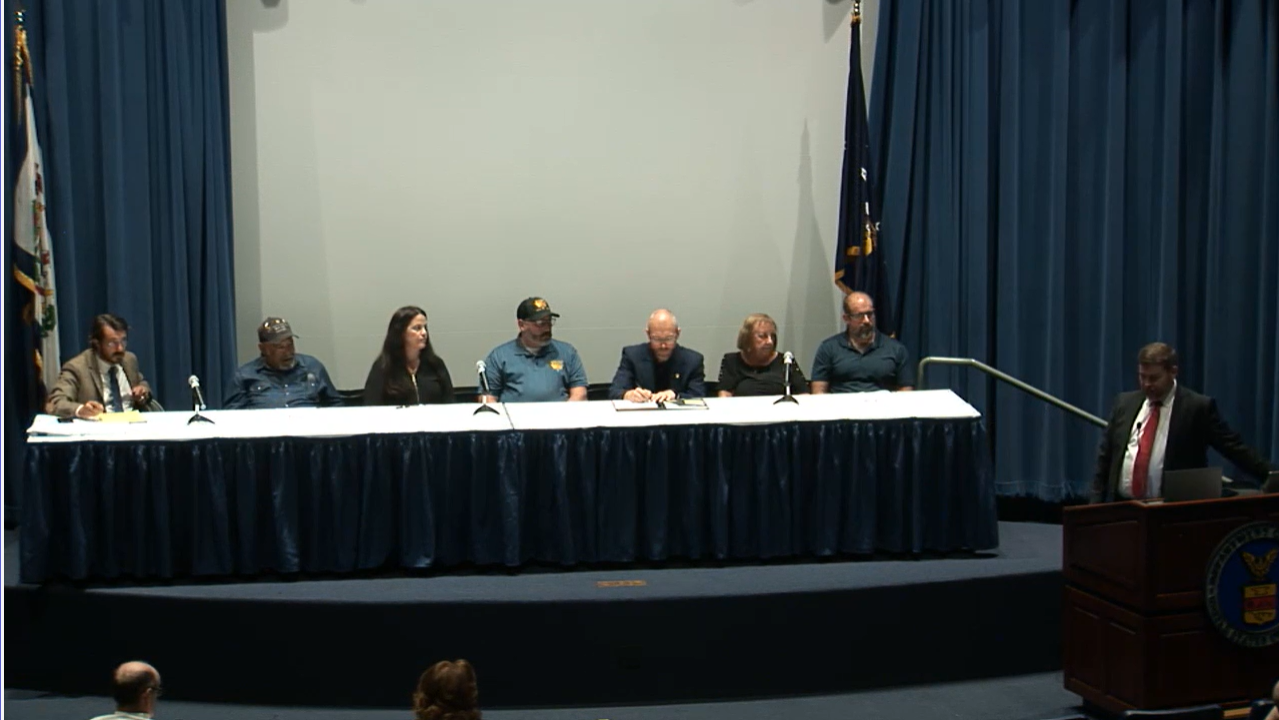Experts in black lung, mine safety, labor and employment law and physicians gathered at the Mine Health and Safety Administration’s (MSHA) office in Beaver on Monday to discuss a new silica dust rule that will take effect on June 17.
Coal producers will have 12 months to comply. Metal and nonmetal mine operators will have 24 months.
The panel discussion, moderated by Assistant Secretary for Mine Safety and Health Chris Williamson focused on the prevention of black lung in young miners and how the administration’s new silica dust rule can help if used by the miners.
“Everybody’s in this room because we care about this issue and we don’t want others to suffer from entirely preventable occupational lung diseases,” Williamson said.
MSHA issued its final rule lowering silica dust exposure for coal miners on April 16. This rule is a long-awaited change amid growing concern about black lung disease.
“When this rule finally comes into play and is implemented, it’ll be exciting to watch it unfold and see everyone’s health improve, but I don’t think that that’s going to happen right away,” Black Lung Clinic Director and respiratory therapist Lisa Emery said. “I hope that with … the dangers of silica coming out and being more publicized, that the miners will come in more often and get screened more often.”
The new rule lowers the maximum exposure to 50 micrograms per cubic meter of air during an eight-hour shift. The current limit is 100 micrograms per cubic meter.
Respirable crystalline silica is a carcinogen. It can cause lung disease, silicosis, lung cancer, progressive massive fibrosis and kidney disease. Coal dust containing silica dust has been shown to increase the severity of black lung cases and affect miners in their 30s and 40s.
“I don’t want to see our younger miners going through what we are going through,” said National Black Lung Association President Gary Harrison, who also suffers from black lung. “And I know this silica dust rule is gonna help eventually. I know it will take a while for it to come in.”
The silica dust problem is thought to be caused by the mechanization of mining, especially in central Appalachia. Large machines grind through larger volumes of rock to maximize coal production.
Mine operators are supposed to ventilate mine work areas to lower the concentration of coal and rock dust, as well as methane.
Under the Part 90 regulation, coal miners who have already developed a pneumoconiosis can exercise rights that allow them to continue working in healthier parts of the mine.
“I’d like for the younger miners to start feeling more confident about speaking up, more confident about exercising their Part 90 rights,” Emery said. “That’s huge for me and our clinic, and I think that miners need to understand that the rights afforded to them under the mine act will protect them even if they’re not a Part 90 miner to make a safety complaint to talk about what’s going on in their mine and that MSHA is going to protect them. But what we’re seeing in the clinics is very scary.”
Grant Money
On Tuesday morning, Sen. Joe Manchin, I-W.Va., announced that the state will receive $2,172,386 million from the U.S. Department of Health and Human Services (HHS) to support health services and treatment programs for West Virginians suffering from Black Lung Disease.
“After their enormous sacrifices, West Virginia’s brave coal miners are entitled to the vital medical care and treatment they need,” Manchin said. “I’m pleased HHS is investing more than $2.1 million to support Black Lung clinics across West Virginia, and I look forward to seeing the positive impacts of the funding. As a member of the Senate Appropriations Committee, I will continue to advocate for resources to ensure all West Virginia miners can access the health care they deserve.”
The West Virginia Black Lung Clinics program is under the West Virginia Division of Primary Care, one of four divisions within the Office of Community Health Systems and Health Promotion, under the West Virginia Department of Health, Bureau for Public Health.
Appalachia Health News is a project of West Virginia Public Broadcasting with support from Marshall Health.
